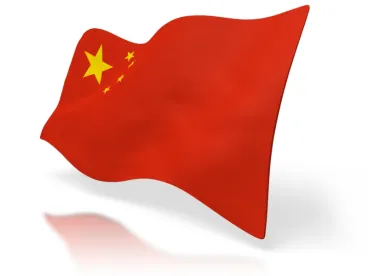In prior blog posts, we have discussed the Foreign Corrupt Practices Act (FCPA) enforcement by the United States government through the SEC and/or the U.S. Department of Justice. But we’ve also said that countries other than the U.S. or the UK, viewed by some as the worldwide leaders in anti-corruption enforcement, are getting into the act. China has now ramped up its anti-corruption enforcement, adding more risks for those companies, and their employees, doing business in China or with Chinese entities. So let’s talk about China’s laws as they affect your business activities and some steps you might want to take to minimize your exposure to problems.
Like most countries, China has several anti-corruption laws, but there are two that should capture your attention and imagination, the Criminal Law of the People’s Republic of China (the CL) and the Anti-Unfair Competition Law of the People’s Republic of China (the AUCL). The AUCL addresses what we’ll call commercial bribery, while the CL talks about two forms of bribery, both official bribery and commercial bribery. Rendered down to their essences, official bribery is offering or paying a bribe to a public official, while commercial bribery is offering or paying a bribe to an employee, officer, or representative of a private organization. The problem arises in telling the difference between public and private over there. Many Chinese businesses are what are called SOEs, state-owned enterprises. Some of these have been privatized, or so it might seem, but the Chinese government often owns minority shares in those private businesses, and exercises varying degrees of control over what goes on. The SOEs’ officers and directors are often public officials or appointees who may be covered by the CL. And, depending on how much “government control” there is, everyone – everyone ! – at an SOE could be a “foreign official” under our FCPA. Confused a little bit?
Another challenge you, and particularly your compliance officers, might face in trying to stay out of trouble is that Chinese corporate documents are not nearly as open and accessible as those in the United States and elsewhere in the West, so doing due diligence becomes even more dicey than it usually is. I work with a friend who is a partner in a Chinese law firm with offices in Beijing and Shanghai. She tells me that the Chinese have become “embarrassed” by scrutiny from the rest of the world and have determined to “show their law enforcement teeth” by cracking down on scofflaws doing business in or with China.
So what can your company do to avert problems doing business in China or with Chinese concerns? Here are a few suggestions:
-
Have ongoing compliance training programs which teach your overseas operatives about our FCPA and Chinese anti-corruption laws.
-
Foster a top-down atmosphere of doing, and appearing to do, the right thing. If your employees or representatives see the CEO and The Board acting ethically and emphasizing ethics, problems will be minimized.
-
Encourage open communication about your company’s anti-fraud programs and regulations.
-
Have a Whistleblower program that encourages reporting and discourages retaliation.
-
Carefully vet your representatives, partners, and vendors in China, and do a periodic (at least once each year) re-check.
-
Pay closer attention to deals involving high profile or political joint venturers or customers.
-
Keep your corporate finger on the pulse of all outgoing payments, whether one-time or repetitive.
-
And remember that “that’s just the culture here” could be just another way of saying “how long is it till I see the Parole Board?” Just be careful out there and pass up business opportunities that could land you in big trouble.




 />i
/>i

